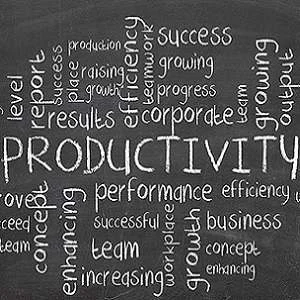Motivated physicians play an important role in providing high-quality healthcare. As such, policy makers and hospital leaders are continually looking for ways to optimise physician behaviour and ensure better care delivery. What's needed is to find the right mix of physician motivators to improve efficiency and productivity, according to a Viewpoint article published in JAMA.
In the article, Allan S. Detsky, MD, PhD, Institute of Health Policy Management and Evaluation, University of Toronto, and co-authors note that health leaders will have to harness a combination of intrinsic and extrinsic approaches to motivation, respecting the variations in existing cultures and practices to be successful in improving healthcare productivity.
Extrinsic motivators include financial reimbursement or other forms of recognition (eg, awards). Examples of intrinsic motivators are "personal satisfaction" derived from doing good work or "internal desire" to achieve a particular objective.
The article includes vignettes to illustrate that both extrinsic and intrinsic motivators can be effective or ineffective, depending on the context and expectations. In a fee-for-service environment in which physicians are accustomed to being paid for economic productivity, financial motivators to increase the volume of care may be well received. However, for a setting in which physicians are salaried and feel adequately compensated, financial motivators to improve attentiveness may actually be perceived as insulting to one’s sense of professionalism. In this context, the authors say intrinsic motivation may be a more effective means of changing behaviour.
For employees who feel that they are being paid appropriately, motivation expert Daniel Pink says that promoting autonomy, mastery, and purpose become the keys to improving performance. In healthcare, these values may be achieved by offering physicians sufficient time for continuing medical education, using dashboards to show physicians key patient health indicators, and involving physicians in organisational decision-making.
Expectations are also important. For example, cardiologists are the second highest-paid speciality, with average earnings of $351,000 a year, but just 44 percent feel they are fairly compensated. This seemingly paradoxical dissatisfaction may have a historical explanation, because cardiology reimbursement has declined slightly, including a two percent reduction between 2012 and 2013, according to the JAMA article.
A motivated workforce is essential for high-quality healthcare and patient satisfaction. Previous research has shown that patients of motivated physicians are more likely to be adherent to medications. "In the extreme, some physicians experience burnout, which is characterised by the loss of interest in their professional lives, leading to decreased productivity or even complete departure from patient care," the authors write.
The article urges healthcare leaders to be thoughtful in recognising that both extrinsic and intrinsic motivators are important to physicians. "Financial motivators alone may increase the degree to which physicians focus on the behaviour being incentivised," the authors note, "whereas intrinsic motivators without sufficient extrinsic reward may be ineffective in achieving performance goals."
Source: JAMA
Image credit: Flickr.com
In the article, Allan S. Detsky, MD, PhD, Institute of Health Policy Management and Evaluation, University of Toronto, and co-authors note that health leaders will have to harness a combination of intrinsic and extrinsic approaches to motivation, respecting the variations in existing cultures and practices to be successful in improving healthcare productivity.
Extrinsic motivators include financial reimbursement or other forms of recognition (eg, awards). Examples of intrinsic motivators are "personal satisfaction" derived from doing good work or "internal desire" to achieve a particular objective.
The article includes vignettes to illustrate that both extrinsic and intrinsic motivators can be effective or ineffective, depending on the context and expectations. In a fee-for-service environment in which physicians are accustomed to being paid for economic productivity, financial motivators to increase the volume of care may be well received. However, for a setting in which physicians are salaried and feel adequately compensated, financial motivators to improve attentiveness may actually be perceived as insulting to one’s sense of professionalism. In this context, the authors say intrinsic motivation may be a more effective means of changing behaviour.
For employees who feel that they are being paid appropriately, motivation expert Daniel Pink says that promoting autonomy, mastery, and purpose become the keys to improving performance. In healthcare, these values may be achieved by offering physicians sufficient time for continuing medical education, using dashboards to show physicians key patient health indicators, and involving physicians in organisational decision-making.
Expectations are also important. For example, cardiologists are the second highest-paid speciality, with average earnings of $351,000 a year, but just 44 percent feel they are fairly compensated. This seemingly paradoxical dissatisfaction may have a historical explanation, because cardiology reimbursement has declined slightly, including a two percent reduction between 2012 and 2013, according to the JAMA article.
A motivated workforce is essential for high-quality healthcare and patient satisfaction. Previous research has shown that patients of motivated physicians are more likely to be adherent to medications. "In the extreme, some physicians experience burnout, which is characterised by the loss of interest in their professional lives, leading to decreased productivity or even complete departure from patient care," the authors write.
The article urges healthcare leaders to be thoughtful in recognising that both extrinsic and intrinsic motivators are important to physicians. "Financial motivators alone may increase the degree to which physicians focus on the behaviour being incentivised," the authors note, "whereas intrinsic motivators without sufficient extrinsic reward may be ineffective in achieving performance goals."
Source: JAMA
Image credit: Flickr.com
References:
Detsky AS et al. (2015) Harnessing the Right Combination of Extrinsic and Intrinsic Motivation to Change Physician Behavior. JAMA. December 1,
2015;314(21):2233-2234. doi: 10.1001/jama.2015.15015
Latest Articles
healthmanagement, productivity, motivation, physician behaviour, financial incentives, job satisfaction
Policy makers and hospital leaders are continually looking for ways to optimise physician behaviour and ensure better care delivery. What's needed is to find the right mix of physician motivators to improve efficiency and productivity, according to a View









